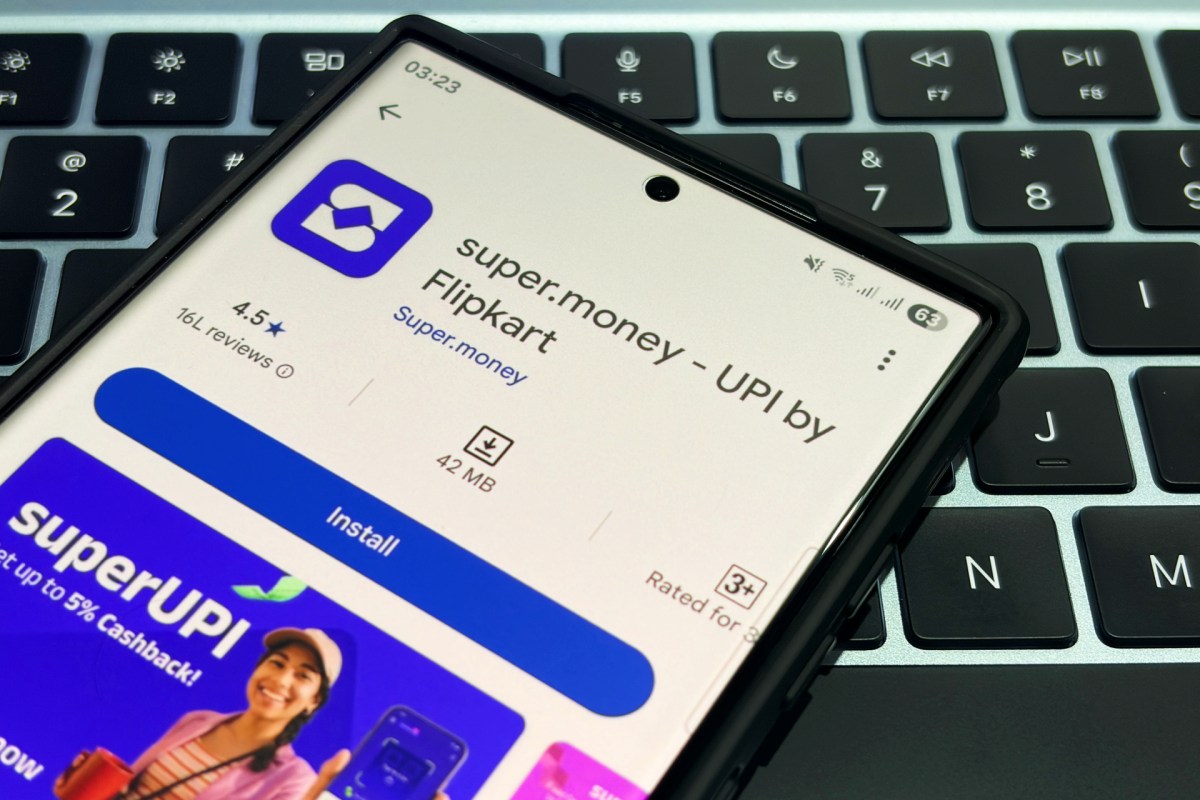A revolutionary partnership between Flipkart’s fintech arm, Super.money, and Kotak Mahindra Bank is set to transform the way money moves in India’s digital payments landscape. This collaboration aims to combine UPI payments, savings, and secured credit into a single account, potentially turning usage into profit.
The partnership has ambitious plans to issue around 2 million secured credit cards within the next 12 months, with approximately 60% of these cards going to first-time borrowers. Within two years, the goal is to issue 5 million secured credit cards. Super.money, which currently serves 10 million active users, expects the alliance with Kotak to contribute around 10% of its revenue next year, as it works towards achieving profitability by 2026, according to Chief Executive Prakash Sikaria.
India’s Unified Payments Interface (UPI), backed by the Indian government, has successfully made instant bank transfers free and ubiquitous, processing over 19 billion transactions per month. However, this success has left little room for fintech companies to generate profits, as regulators do not allow merchant fees that typically fund rewards and credit programs. Super.money’s strategy of using a secured card and savings account to reintroduce incentives offers a potential template for building viable business models on top of no-fee payment systems.
“We utilize UPI not just to solve the payment use case, but to build an interesting cross-financial services play where we acquire and retain customers with the UPI,” Sikaria explained to TechCrunch.
Launched in June 2024 as Walmart-owned Flipkart’s latest fintech venture, following the spin-off of PhonePe in 2023, Super.money is already generating approximately $3 million in monthly revenue, with an annualized run rate of roughly $36 million, according to the executive.
The fintech app has emerged as one of India’s top five UPI platforms in recent months, processing over 200 million transactions per month for four consecutive months through August, as per the National Payments Corporation of India. Around 80% of Super.money’s revenue comes from personal loans, 10% from credit cards, and the remaining 10% from payment products such as! bill payments and recharges.
The fintech retains roughly 85% of its users, with 60-70% of its transactions coming from customers under the age of 30.
Techcrunch Event
San Francisco
|
October 27-29, 2025
Sikaria noted that Super.money’s business model is based on two monetization engines: the financial services engine, which includes products like personal loans, cards, and deposits, and commerce. The idea is to introduce a ‘pay-in-three’ model on top of commerce, creating a financial overlay that allows customers to buy now and pay later within the Super.money ecosystem.
The partnership with Kotak Mahindra Bank, India’s fourth-largest lender by market capitalization, provides Super.money with access to a large, regulated banking infrastructure. This collaboration follows an earlier tie-up with Utkarsh Small Finance Bank to offer secured cards through its platform, marking the fintech’s move into mainstream retail banking.
The partnership introduces a “3-in-1 Super Account,” which combines a savings account, UPI payments, and a fixed-deposit-backed secured credit card aimed at expanding credit access for first-time borrowers.

To open a 3-in-1 Super Account, users are required to make a fixed deposit of at least ₹1,000 (approximately $11). The account earns interest on the deposit and offers a cashback on every transaction. Additionally, it includes a UPI-on-credit feature — a credit line backed by the deposit that does not require any income proof.
Sikaria explained to TechCrunch that secured cards were chosen as the anchor product because they fit within India’s zero-fee UPI system while still allowing for rewards and cashbacks that the platform was never designed to support.
“Our focus is on bringing in users who have a higher propensity to engage with our products,” he said. “UPI is the core engagement and acquisition hook, but for people who don’t want to engage in financial services or other products that we launched, we do not want to serve them from a UPI or payment perspective.”
The partnership with Kotak Mahindra Bank comes shortly after Super.money teamed up with SoftBank-backed Juspay to launch a one-click checkout experience for online merchants, primarily aimed at direct-to-consumer brands.
Around 1,000 merchants are already using the solution, and Super.money plans to expand this network through partnerships with more D2C players and other companies within the Flipkart group, according to Sikaria.
The secured card earns merchant discount revenue on transactions, which funds the cashback, Sikaria said. “Obviously, there is a standard acquisition fee to the partner bank that we charge to the bank, so that comes as a monetization for us as well,” he added.
Super.money plans to issue approximately 200,000 secured cards per month under its partnership with Kotak before expanding to other banks, Sikaria said.
So far, Flipkart has invested around $50 million in Super.money to initiate its operations. As the business scales, the fintech plans to raise additional capital, possibly from external investors as well.
“We need
[ad_2]
Source Link





